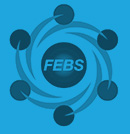
Programme Features
Program at a glance
Each day will include a Plenary session with invited lecturers (see Speakers & Chairs) and a Workshop with selected talks. Poster sessions will be held on three evenings preceeded by Elevator Pitch session during which selected Poster are briefly introduced.
Plenary sessions
There will be five morning Plenary sessions from Sunday to Thursday, with a total of 25 lecturers and 5 chairs. Each Plenary Session will begin with a 20-minute introductory talk by the session chair, a leading researcher who will present the session topic and summarize recent developments in the literature as well as the key questions driving new research.
This introductory talk will be followed by 30-minute lectures given by recognized experts in the field. Lecturers are asked to leave sufficient time for discussion with the audience.
To facilitate further exchange between lecturers and students, lecturers will be available at selected Meet the Speaker tables during lunch for discussion with interested course participants.
Workshops & Elevator Pitch sessions
There will be four afternoon Workshops from Sunday to Thursday. The topics addressed in these Workshops will mirror those of the morning Plenary sessions. The Workshops will be chaired by the speakers of the corresponding morning session or by attending members of the International Scientific Advisory Board and will include four 15-minute oral presentations, selected from abstracts of participating early-career scientists.
In addition, there will be three Elevator Pitch sessions on Days 2, 3 and 5 to coincide with the evening Poster sessions (A–C). For these sessions, ten 5-minute oral poster talks by PhD students or junior postdoctoral fellows will be selected to introduce their posters for the evening.
Selection of abstracts for oral presentations will be made by the International Scientific Advisory Board following evaluation of submitted abstracts on the basis of the scientific quality.
Poster sessions
The Poster sessions will represent an essential part of the lecture course. If conditions permit, they will be held outdoors. All participants are expected to attend the Poster sessions. All abstracts—whether or not they are selected for an oral presentation—will be displayed as posters throughout the entire course to facilitate discussion.
We will have three dedicated Poster-viewing sessions, and authors will be required to be present at their poster during one of these three sessions. Thirty of the submitted poster abstracts will be selected for short talks, which will be distributed across three afternoon sessions preceding the Poster-viewing periods. Each Poster session will last two hours (8–10 pm).
We will have three dedicated Poster-viewing sessions, and authors will be required to be present at their poster during one of these three sessions. Thirty of the submitted poster abstracts will be selected for short talks, which will be distributed across three afternoon sessions preceding the Poster-viewing periods. Each Poster session will last two hours (8–10 pm).
Keynote Lectures
The 2026 meeting will open with a Keynote lecture by Prof. Stuart M. Levitz (University of Massachusetts Medical School, USA), a distinguished immunologist whose research has significantly advanced our understanding of host-fungal interactions. His work on fungal antigens and immune responses has been instrumental in identifying novel therapeutic and vaccine strategies against human fungal infections. Prof. Levitz is widely recognized for his contributions to translational mycology and immunotherapy, making him a key figure in the fight against fungal diseases.
The meeting will conclude with a Keynote lecture by Prof. Geraldine Butler (University College Dublin, Ireland), a world leader in the genomics and evolution of pathogenic yeasts. For more than 25 years, her research has advanced our understanding of Candida virulence through innovative comparative genomics approaches. Her group has developed foundational community resources, including the Candida Gene Order Browser (CGOB), a powerful tool for comparative analysis across pathogenic and non-pathogenic species. Her work extends beyond pathogens to fundamental questions in fungal evolution. Together, her research has profoundly shaped our understanding of fungal diversity, evolution, and pathogenesis.





